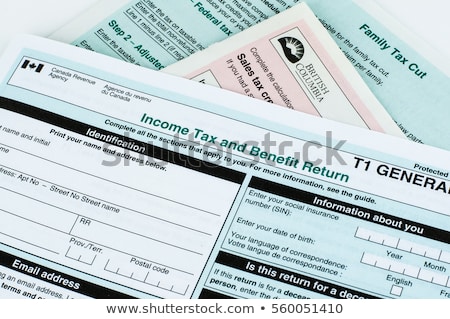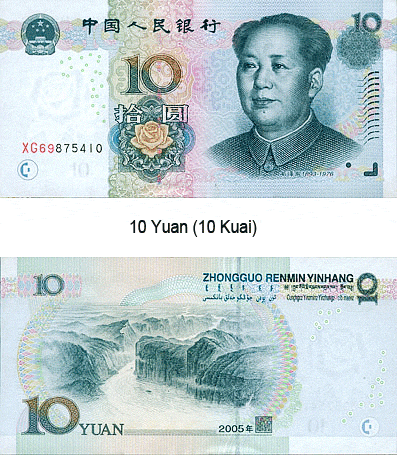
Russia’s MOEX stock market index had already plunged 50% last week in the wake of the invasion of Ukraine. While individual Russian stocks that trade on US exchanges were halted, trading in the VanEck Vectors Russia https://1investing.in/ ETF was not. The decline in the RSX ETF gives an idea of the type of carnage the Russian stock market would have experienced today if it were opened, and what it might experience when it is eventually reopened.
Traders agreed that the heavy restrictions meant Moscow was not a properly functional market. “The Moex rallied in early trade, but that is what happens if lots of people can’t sell,” Neil Wilson of Markets.com pointed out. It was its first session since 25 February when trading was halted after sanctions sent Russian equities tumbling. Trading of OFZ government bonds restarted on Monday, with the central buying OFZ papers in an effort to limit volatility. That could lead to billions in dollars of losses for BP, which said it would divest its 20% stake in Russian oil giant Rosneft on Monday.
Russia’s trapped domestic investors push stock market to 12-month … – Financial Times
Russia’s trapped domestic investors push stock market to 12-month ….
Posted: Thu, 27 Apr 2023 07:00:00 GMT [source]
Defense stocks were among the few standouts, rallying after Germany announced plans to increase its military spending. The Franklin FTSE Russia (FLRU) ETF was down nearly 15% in early trading Monday. The declines come after the United States and Europe imposed even tougher sanctions on Russia following its invasion of Ukraine. Oil prices have soared to seven-year highs in recent days due to concerns about a disruption in supply from Russia, the world’s No. 2 producer of oil. Citi noted in the filing that it is “pursuing the exit” of its global consumer banking business in Russia but it still expects to have a presence in Russia through its institutional clients group for businesses. The Russell 2000, an index of smaller American companies, was also up Monday.
Foreigners banned from selling Russian stocks as market set for limited reopening
So far, it said currency and money-market trading on the Moscow Exchange would begin at 10 a.m. Local time on Tuesday, which is a delayed start from its normal start time. The bank also said its extended hours trading in the morning and evening will be canceled from March 1 until March 5.
That took away a primary incentive for fund managers to invest there. Foreigners are barred from selling shares under rules imposed to counter Western sanctions against Russia’s weakening financial system and currency. Global markets had been turbulent last week after Russian President Vladimir Putin launched an invasion of Ukraine, and the pain has spread beyond stocks.
Russia has prevented foreign investors from selling rubles for dollars. In New York, the 1914 restrictions were designed “to stop Europeans from selling their shares and cashing out their dollars for gold, and it worked,” Mr. Silber said. Shares of Yandex, which traded down more than 20% in pre-market trades on Monday before being halted, were among the Russian stocks that could not be traded, along with Ozon Holdings, Mobile TeleSystems, and Mechel.
Defense stocks set to pop on continued Russia worries
Since then, the exchange has expanded to include financial instruments ranging from cash equities to commodity futures. The central bank estimates that roughly 7.7 trillion rubles, now equal to about $76 billion, of Russia’s stock was owned by retail investors as of late 2021. Trading will be allowed in 33 of the 50 companies that are part of the MOEX index, including air carrier Aeroflot, state-owned gas producer Gazprom and oil giant Rosneft, according to a central bank announcement. Germany announced plans over the weekend to allocate 100 billion euros to a special fund for more defense spending. Wall Street is worried about the impact of more economic sanctions against Russia following its invasion of Ukraine, and the fact that Russia has put nuclear weapons forces and other deterrents on high alert.
- Reuters, the news and media division of Thomson Reuters, is the world’s largest multimedia news provider, reaching billions of people worldwide every day.
- Trading in blue chips, including state lenders Sberbank (SBER.MM) and VTB (VTBR.MM), energy majors Rosneft (ROSN.MM) and Gazprom (GAZP.MM), will take place between 0650 and 1100 GMT, with short-selling banned, the central bank said on Wednesday.
- Global markets had been turbulent last week after Russian President Vladimir Putin launched an invasion of Ukraine, and the pain has spread beyond stocks.
- (The firm holds hundreds of millions of dollars in Russian stocks across its funds.) He isn’t interested in selling, and he doesn’t know how he would complete the transactions anyway, since as a foreign-owned fund his holdings are frozen.
The market initially rose by more than 11% when a limited, shortened trading session got under way on the Moscow Exchange. But the rally lost some momentum, with the Moex index of blue-chip shares ending the day 4.4% higher. Reuters, the news and media division of Thomson Reuters, is the world’s largest multimedia news provider, reaching billions of people worldwide every day. Reuters provides business, ind definition financial, national and international news to professionals via desktop terminals, the world’s media organizations, industry events and directly to consumers. Trading on the derivatives market with contracts on Moscow Exchange and individual shares, included on the Moscow Exchange index, will take place from 10 a.m. (0700 to 1100 GMT) in the usual format, the central bank said on Wednesday.
Trading & brokers
From there, you can find a link to the public company’s website, where annual reports and other important disclosures are typically found. These reports are helpful when evaluating individual stocks or bonds rather than the broad economy. On March 3, the London Stock Exchange suspended trading in shares of 27 companies with links to Russia, including some of the biggest in energy and finance. MCSI said that after consultation with a large number of asset managers it determined the Russian stock market to be uninvestable.
- Aton and Finam, two other large Russian brokerages, both said they had enough liquidity, yet Finam added that a small number of its clients also faced margin calls after the OFZ market re-opened.
- The bank also said its extended hours trading in the morning and evening will be canceled from March 1 until March 5.
- Just 33 of the 50 securities on the rouble-denominated Moex were trading.
- The S&P 500 rebounded another 0.7% Monday after nothing terrible happened over the weekend.
- Russia’s government may intervene to support its companies and investors.
The Russell 2000 (IWM) is holding just above its 200-day MA but has been curtailed by its 20-day MA; this squeeze will have to resolve eventually,… Investing.com — U.S. tech stocks were rising after the annualized core inflation reading for August met expectations, stoking hopes the Federal Reserve is reaching the end of its… Investors should consider these risks in the context of their portfolios. In a diversified portfolio, it might make sense to include exposure to Russian equities or bonds despite their higher risk. A diversified portfolio may increase long-term risk-adjusted returns.
Boss of devastated Azovstal plant: ‘Steel is as key to Ukraine’s victory as soldiers’
But on Thursday, almost a month after the market closed, trading partly resumed. Market capitalization shows the value of a corporation by multiplying the stock price by the number of stocks outstanding. Large-cap stocks are usually industry and sector leaders and represent well-known, established companies.
Russia’s central bank relaunched trading in ruble-denominated government bonds this week. Stocks are set to fall at the opening bell Monday as investors grapple with what the latest headlines about Russia and Ukraine mean for the global economy. Sanctions are hitting the Russian economy hard, and the measures that Moscow is taking in response, including restricting access to foreign currency and raising interest rates, further limit what companies can do.
Both markets fell sharply when they initially reopened, but regained their footing and have been trading ever since. Mr. Grapengiesser of East Capital said he had been getting “three calls a day” from foreign hedge funds looking to buy his Russian shares at steep discounts. (The firm holds hundreds of millions of dollars in Russian stocks across its funds.) He isn’t interested in selling, and he doesn’t know how he would complete the transactions anyway, since as a foreign-owned fund his holdings are frozen. The central bank has not indicated when it will allow the Russian stock market to reopen.
For example, Russia’s economy may have contracted 0.2% in 2015, but the country’s equity market may have appreciated if these losses were better than expected. For example, GDP growth in 2018 surpassed expectations at 2.3%, and the World Bank’s forecast for 2021, 2022, and 2023 just as lucrative—3.2%, 3.2%, and 2.3%, respectively. If you prefer to invest directly in Russia’s RTS, you can analyze stocks using the English version of the RTS website.
Meanwhile, Russia has made clear they are going to pour government resources into artificially propping up the shares of companies that are trading,” he said. When the market reopened, only 33 stocks (out of several hundred) were allowed to trade, under heavy restrictions. Foreign investors couldn’t sell their holdings, and there was a blanket ban on short-selling, which stopped traders from betting on falling prices. The Russian stock market was never as important to its national economy as its counterparts in the United States, Europe and elsewhere are to theirs.
Most Active Stocks
Russia has become a premier emerging market and member of the BRIC nations (the emerging markets of Brazil, Russia, India, and China) following its explosive 700% growth between 2001 and 2006. Driven by large crude oil reserves and moves towards free-market initiatives, the country became a popular destination for many investors. The country’s 2014 military intervention in Ukraine and a downturn in commodity prices have hurt its prospects, but investors should still keep an eye on this $1.6 trillion economy. Moscow’s stock market has rallied after share trading resumed for the first time since being suspended when the Ukraine invasion began nearly a month ago, although the US dismissed Thursday’s limited reopening as a “charade”. From midday on Wednesday, SPB Exchange allowed securities of another 1,639 foreign companies to be bought and sold by domestic market players, most of whom are Russian residents who use the platform to trade foreign stocks.
“All operations by NCC are aimed at limiting systematic risks so issues of a single brokerage do not spill over on the overall market,” the Moscow Exchange, parent company for NCC, said in a statement. As a result, nearly a hundred of Univer’s clients faced combined losses of 174 million roubles ($1.7 million), the memo said.
Before the war, foreign investors were showing growing interest in Russian stocks as an emerging markets opportunity. But roughly a week into the war, Russia was removed from emerging markets indexes compiled by MSCI, a division of Morgan Stanley. Trading of a limited number of stocks including energy giants Gazprom and Rosneft took place under curbs that are meant to prevent a repeat of the massive selloff that took place Feb. 24 in anticipation of Western economic sanctions. Foreigners cannot sell and traders are barred from short-selling, or betting prices will fall. Russian energy companies Gazprom (OGZPY) and Lukoil (LUKOY) and top financial firm Sberbank (SBRCY) are among the top holdings in all three funds.

Russia owes billions to foreigners in dollar-denominated bonds but might fail to pay up because of the heavy sanctions on it from the war on Ukraine. Hong Kong’s Hang Seng lost as much as 1.6%, before closing down 0.2%. Japan’s Nikkei 225 and Korea’s Kospi erased earlier losses and were up 0.2% and 0.8%, respectively. Shares of defense contractors Northrop Grumman (NOC), Raytheon (RTX), General Dynamics (GD) and Lockheed Martin (LMT) were all up between 3% and 6% in premarket trading Monday.
The halts by the NYSE were due to “regulatory concern,” according to its website. The Nasdaq and New York Stock Exchange halted trading in US-listed Russian stocks on Monday following the invasion of Ukraine and harsh sanctions from Western countries imposed against Moscow. This may seem like an odd way to trade, but Whitton points out that this happened several times before. Greece was closed for six weeks several years ago, but Greek ETFs in the U.S. continued to trade. When the Greek market finally reopened, the Greek stocks priced at almost exactly what the ETFs were trading them for.
Russian Retail Traders Send Stock Index Back to Pre-War Levels – Bloomberg
Russian Retail Traders Send Stock Index Back to Pre-War Levels.
Posted: Tue, 01 Aug 2023 07:00:00 GMT [source]
“There are an array of sanctions affecting RSX but we have not halted creates or redeems,” Jan Van Eck, CEO of VanEck, said in an email. “The ETFs became the proxy for the Greek market,” Todd Rosenbluth, head of ETF and mutual fund research for CFRA Research, told me. What this means is that ETFs can be on the market, even with the underlying market closed. How can Russian ETFs trade when the underlying securities are not trading?
